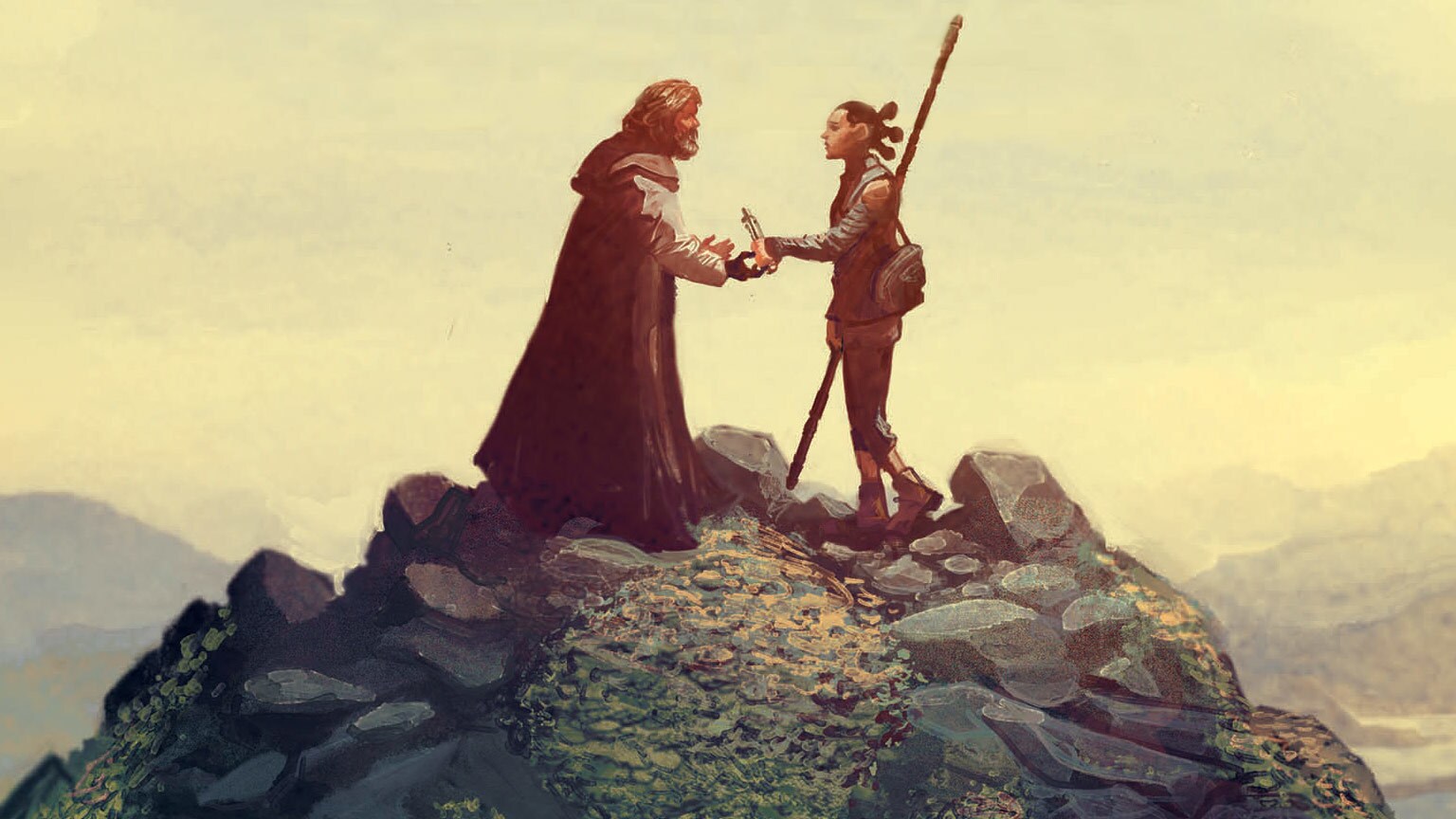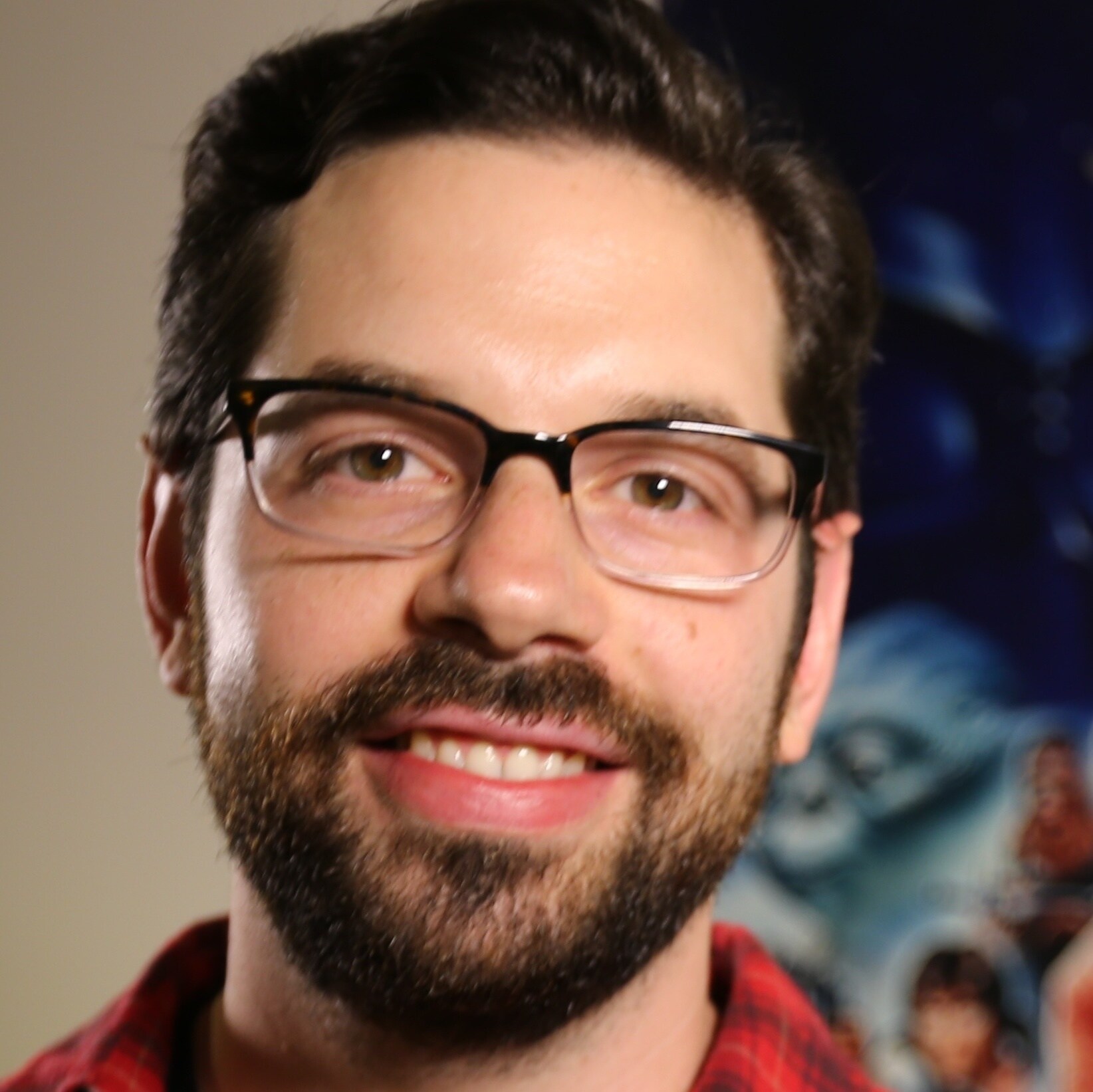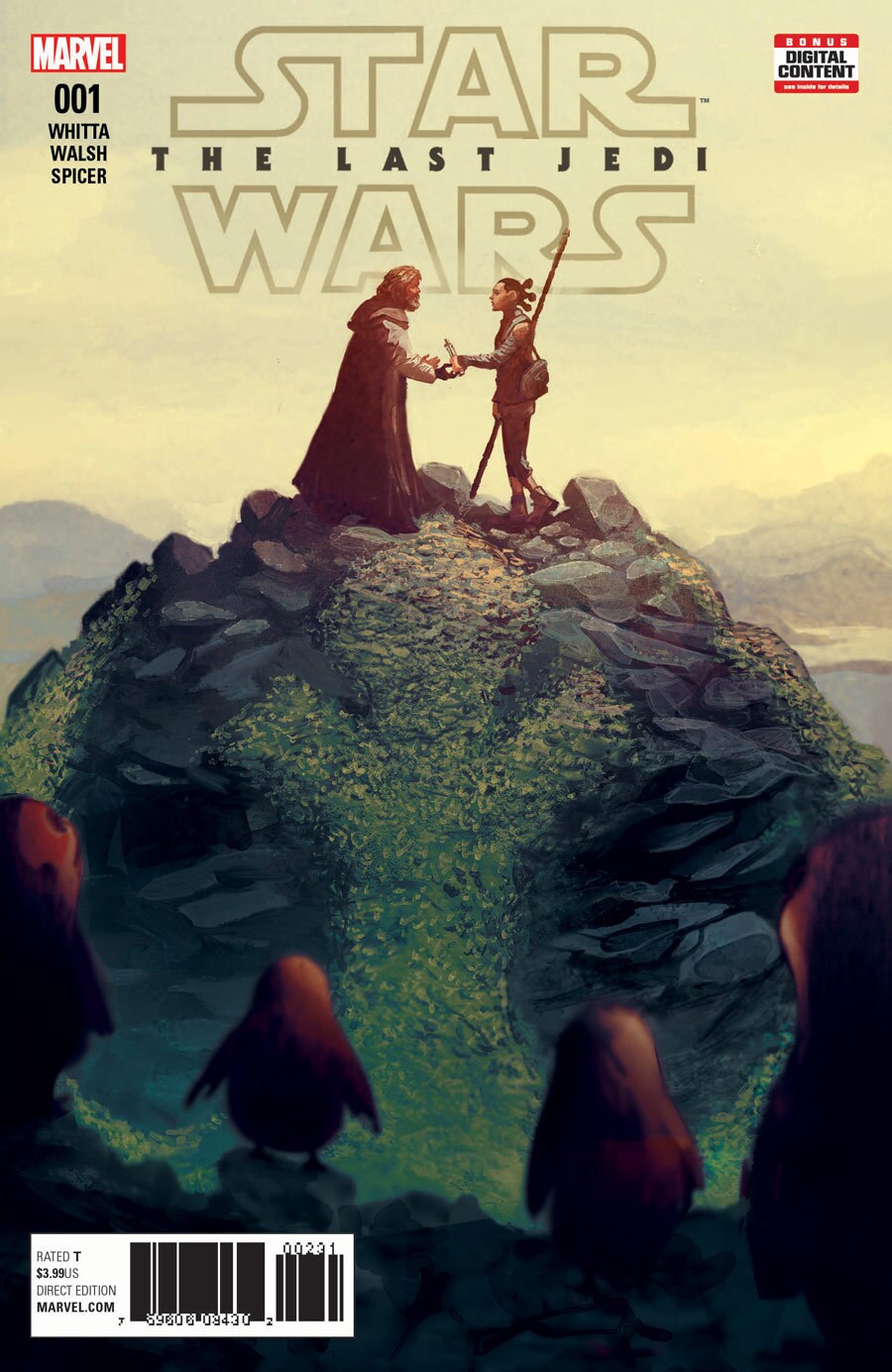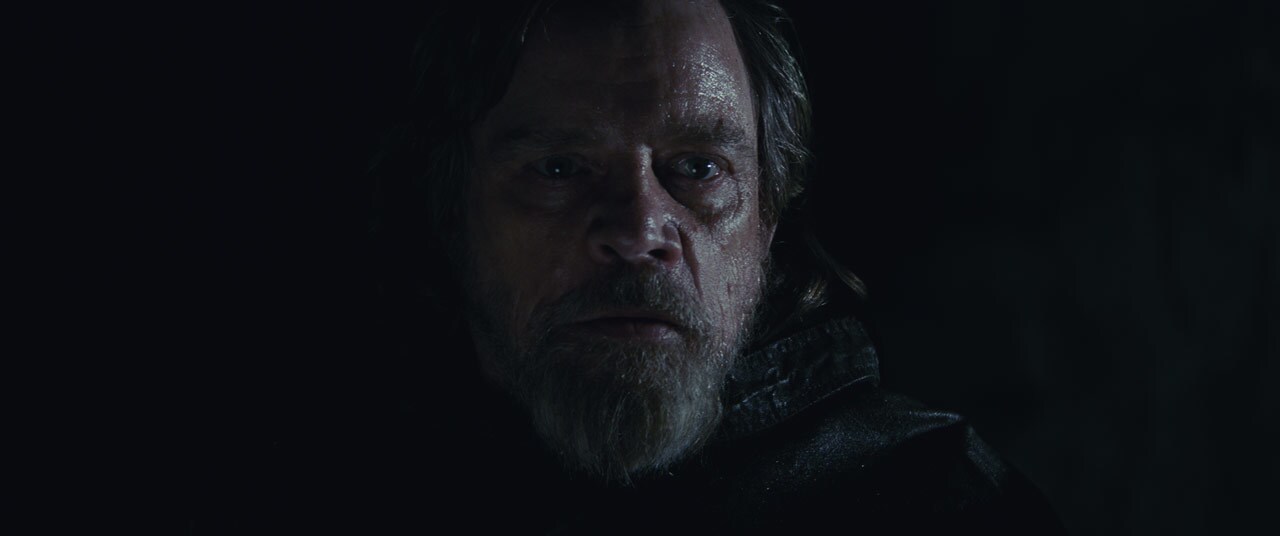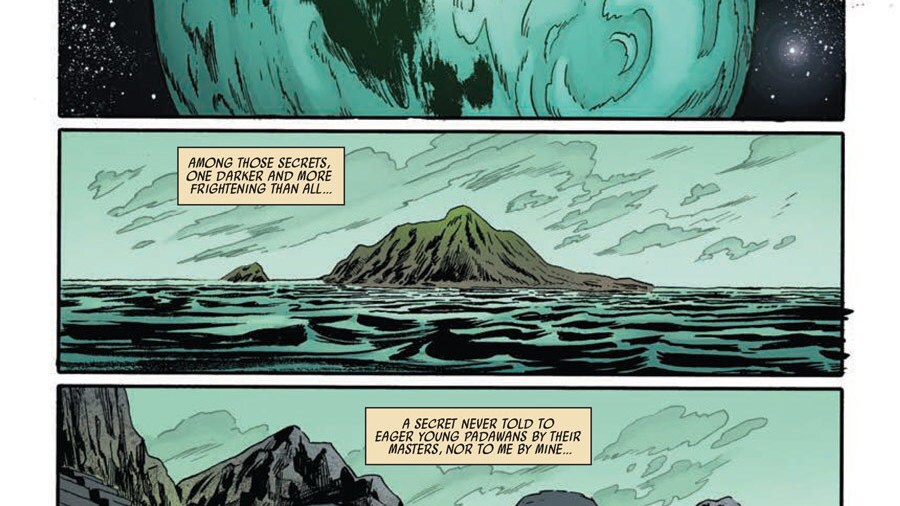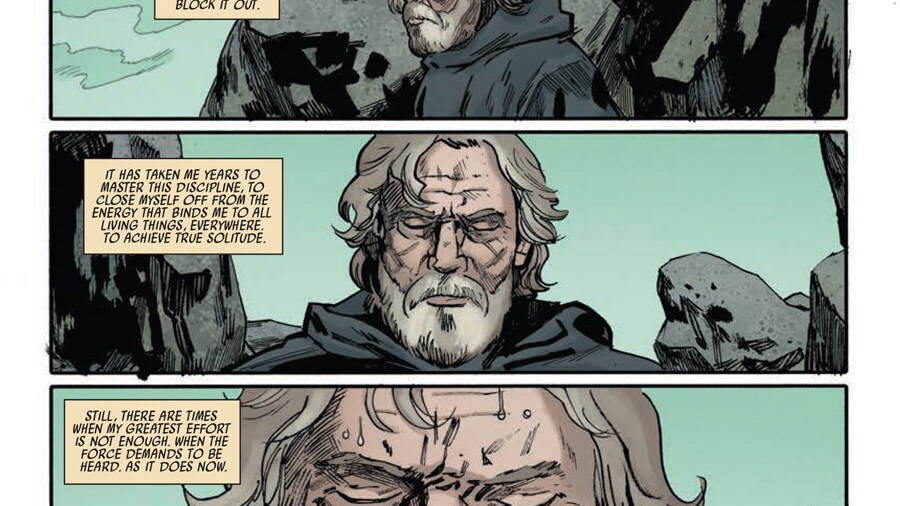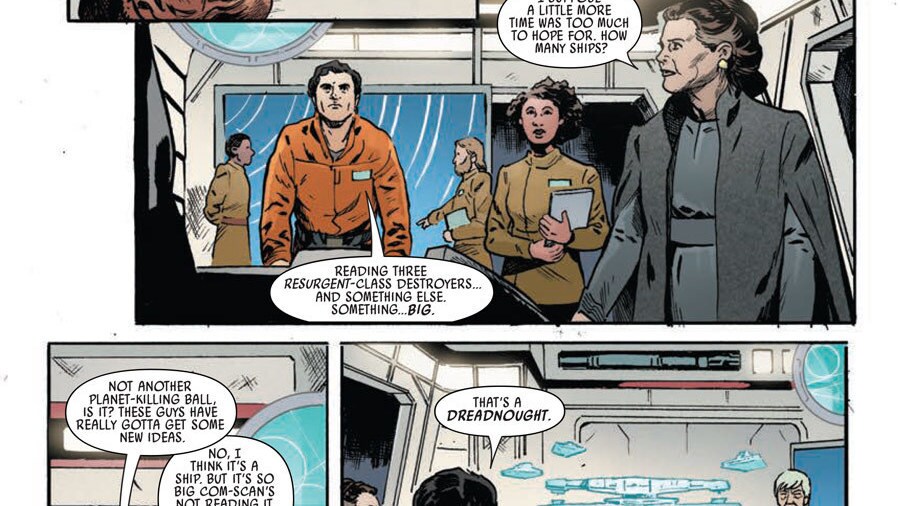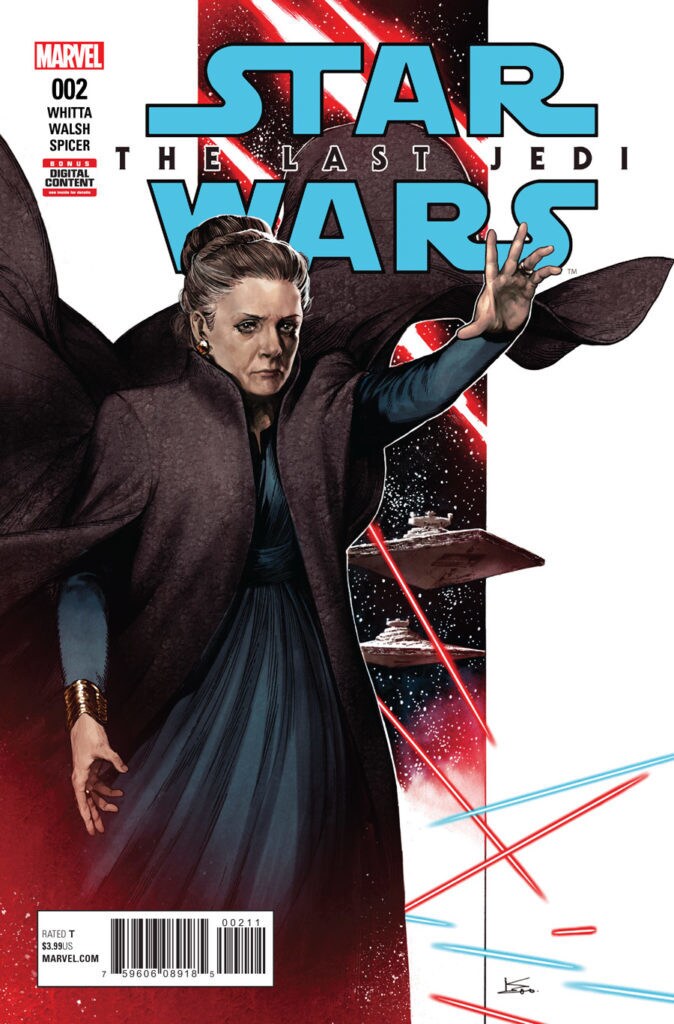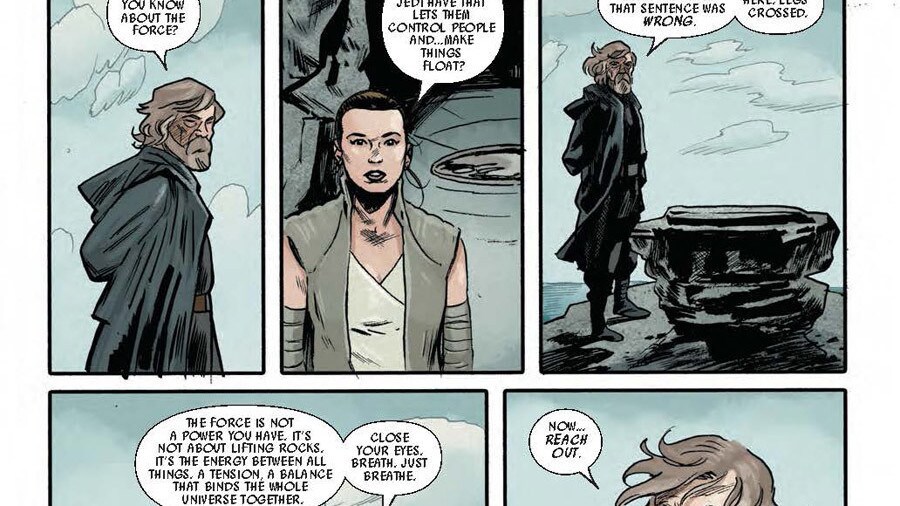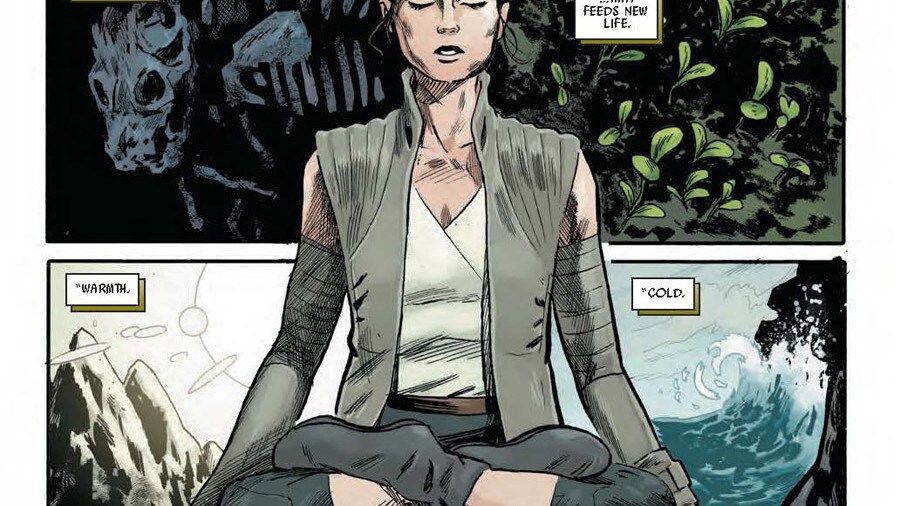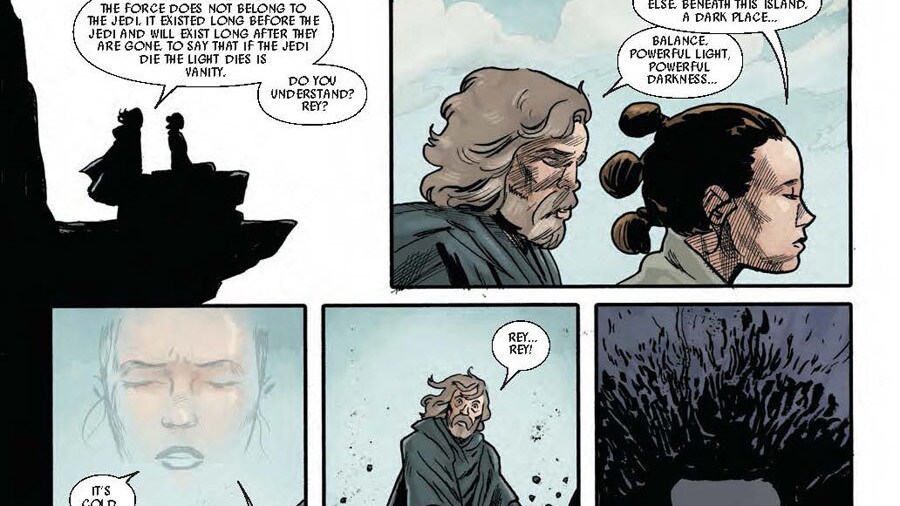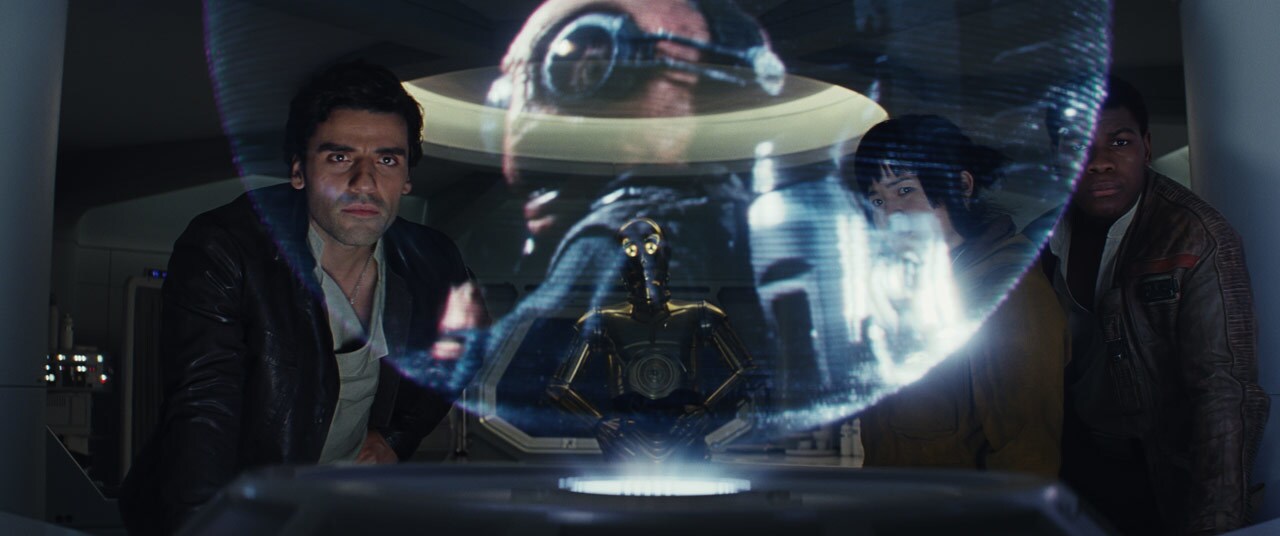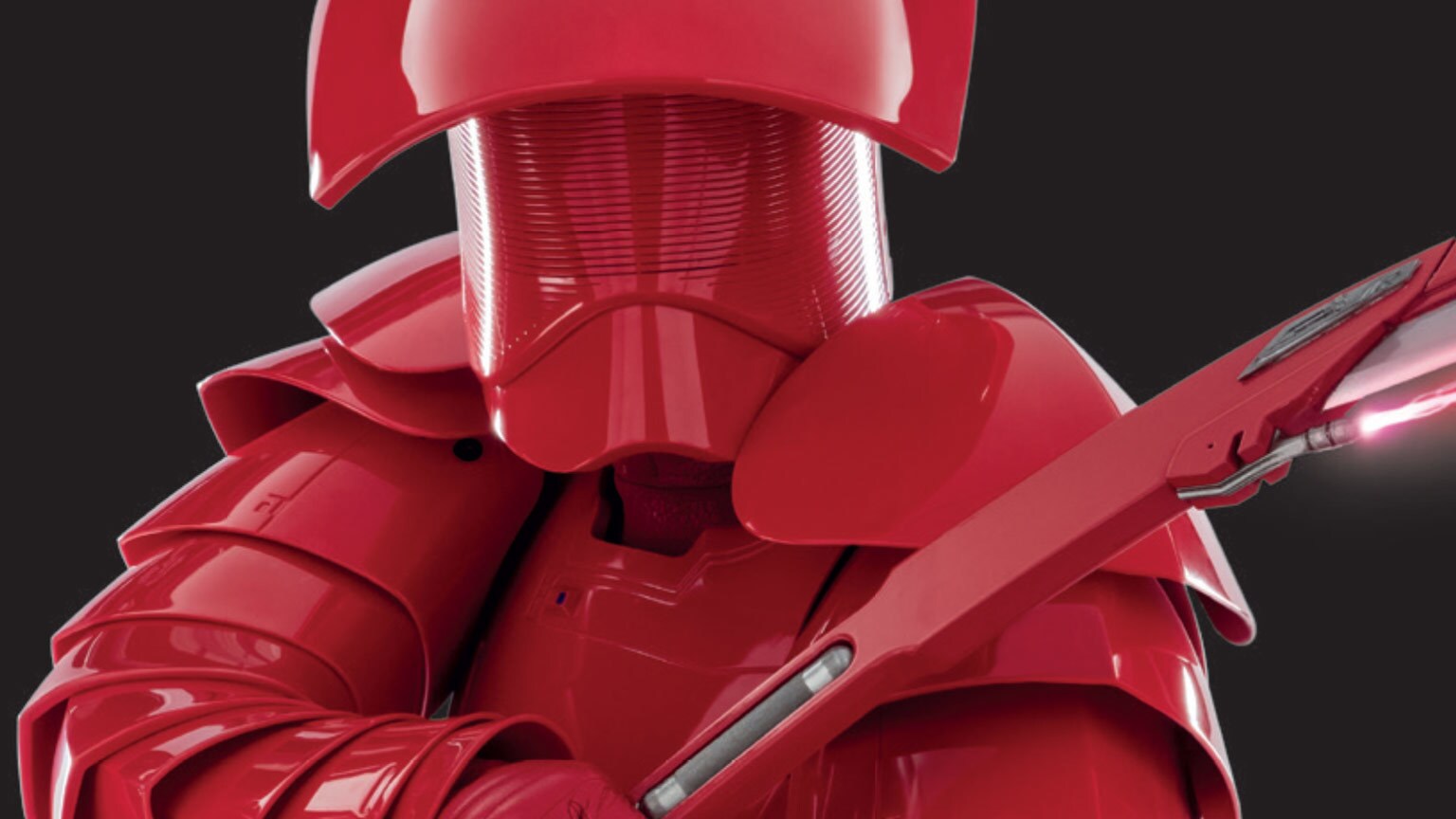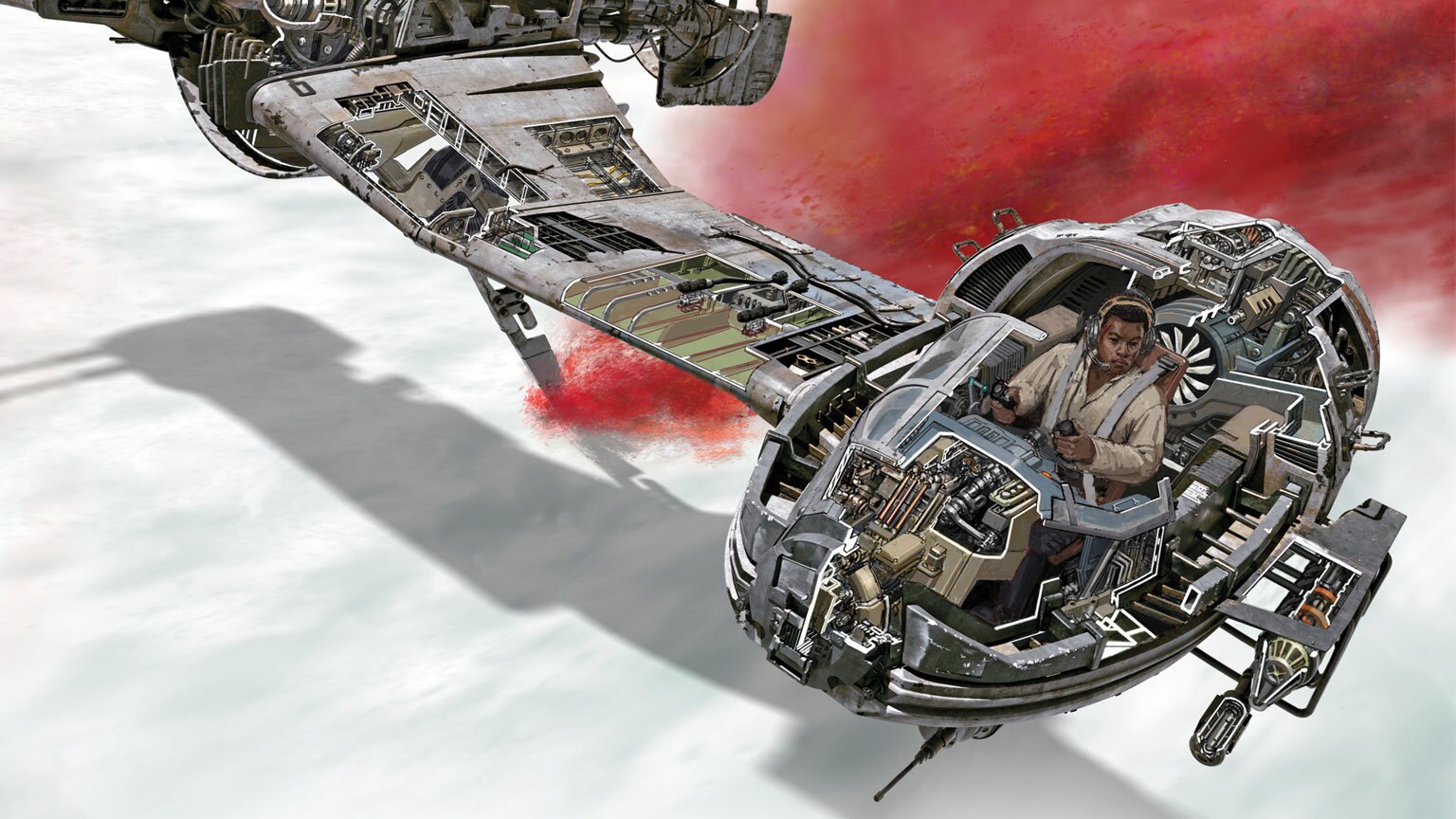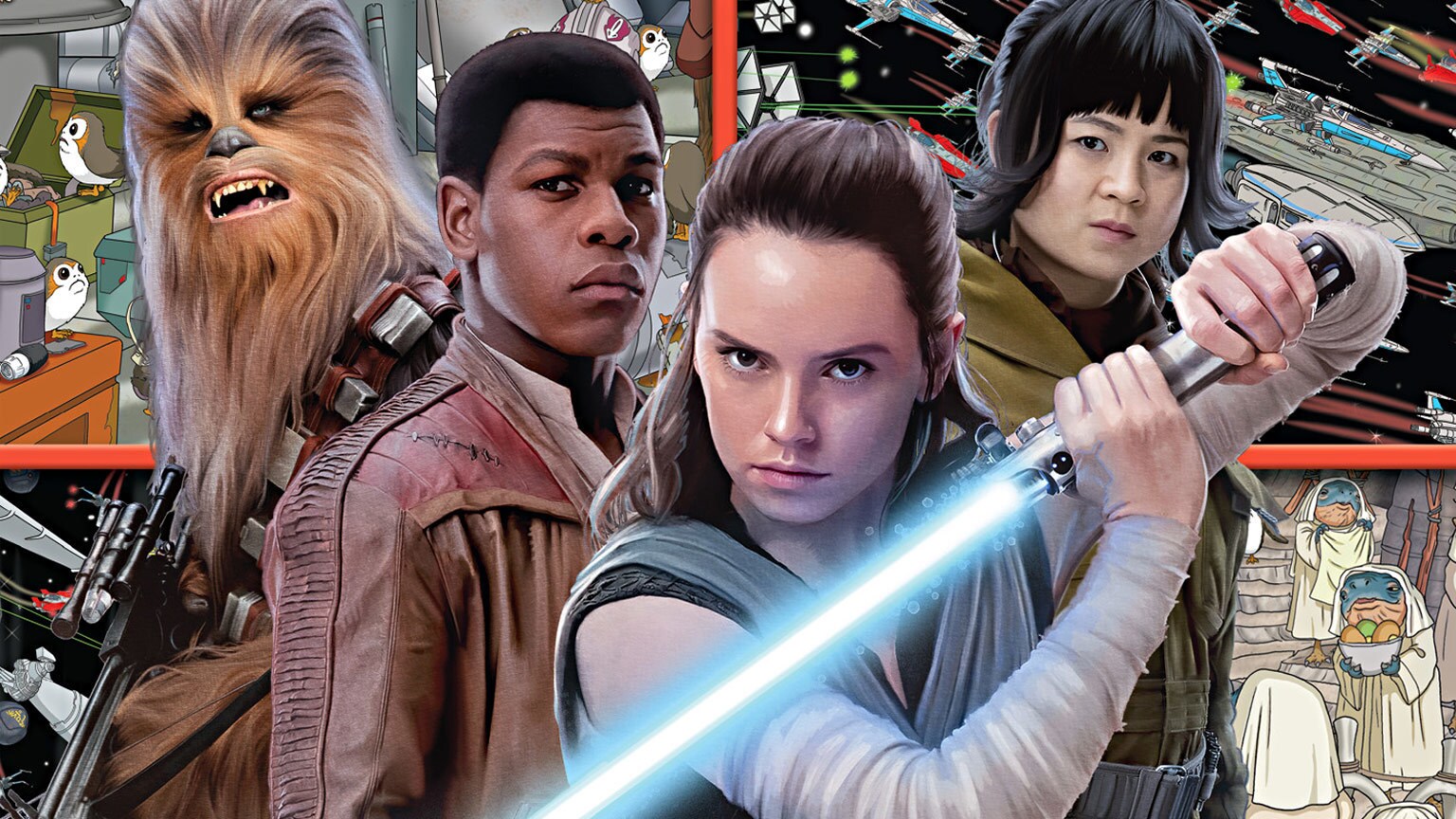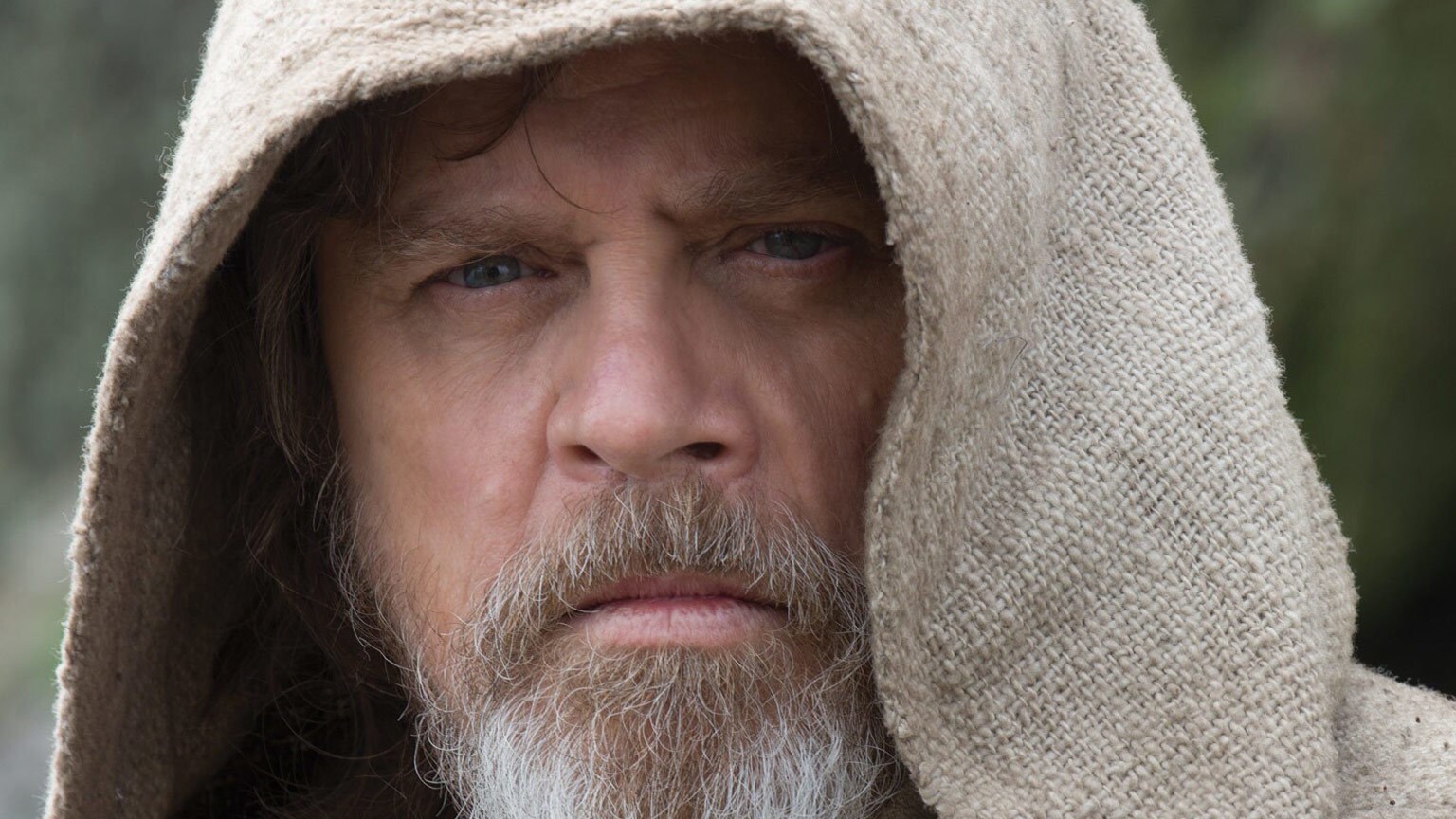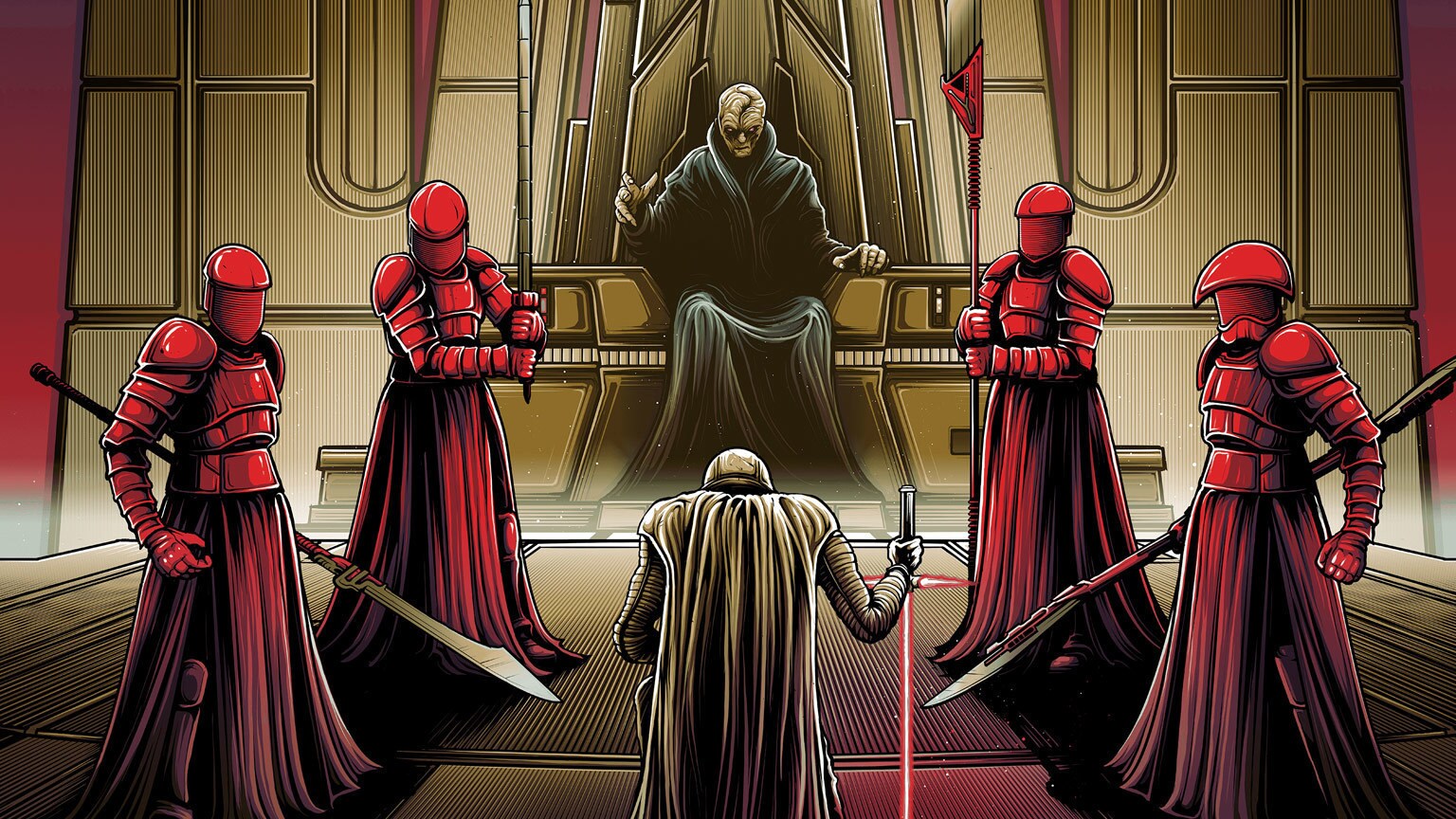If you loved Star Wars: The Last Jedi, there's good reason to be excited for Marvel's comic-book adaptation. Aside from the fact that it's penned by Rogue One scribe Gary Whitta, the series promises to be more than a mere retelling of the film's story: Whitta and artist Michael Walsh will be adding select new scenes and perspectives into the story -- a "jazz riff," as he told StarWars.com, on the tale. (In addition, the series places Whitta in a unique category as the only person on Earth with writing credits for a Star Wars live-action movie (Rogue One), TV episode (Star Wars Rebels), book (From a Certain Point of View), and comic. To quote Supreme Leader Snoke, that's "something truly special.") Marking today's arrival of issue #1, StarWars.com spoke with Whitta about his new status as a Star Wars writer record-holder, finally getting to pen Skywalkers, and paying tribute to his favorite Mon Calamari.
StarWars.com: First, how does it feel to be the only person to have written [or contributed to] a Star Wars movie, comic, book, and TV episode? What's that like?
Gary Whitta: It's funny. I can't even remember how that came about in terms of realizing it. Either it occurred to me, or somebody pointed it out to me along the way, and I said, "That can't be right, can it?" 'Cause there's obviously lots of writers out there who have done Star Wars in different mediums, but I'm one of the few that's lucky enough to have done one of the movies, and once you narrow it down to just the writers who've done the movies, it suddenly becomes a way, way, way shorter list.
StarWars.com: Yeah. Right.
Gary Whitta: And then I've just been extraordinarily lucky that the work that I did on Rogue [One], I think Kiri [Hart] and other people at Lucasfilm that I worked with were happy enough with me to invite me to stick around for more, so I did some [Star Wars] Rebels and then the fiction anthology came up. I feel like once you are in the Lucasfilm family, if they like you and trust you, you'll always be asked to do more. Star Wars is one of those things that it could be almost anything and I would have a hard time turning it down if it's in the Star Wars universe, because I'm such a fan. It just kind of worked out that way. I thought that’s kind of cool, but I mean surely, if anyone, George [Lucas] must have written stuff for other things.
StarWars.com: I don’t think he did…
Gary Whitta: I remember when I was a kid, reading the Star Wars novelization that he is credited as the writer of -- I think it was actually ghostwritten and they just slapped him name on it. [Note: It was ghostwritten. Alan Dean Foster wrote the novelization. -- Ed.] I don't remember the details, but yeah, it's a weird thing and now people are joking, "Well, you gotta do a video game, you gotta do this and that," like keep adding and bolting pieces on for as long as they want to ask me to do things in the Star Wars universe. I think I would always have a very hard time saying no. It really just kinda happened by accident. As bragging rights go, the 10-year-old version of me is certainly very, very impressed with grown-up Gary right at this moment. [Laughs]
StarWars.com: You might be the answer to a Jeopardy question one day.
Gary Whitta: I know. Isn't it funny? That’s right, even in the realm of trivia it's kind of a weird distinction to have.
StarWars.com: So how did the opportunity [to write the comic] come about?
Gary Whitta: I have to go back and remember. I got to know [former comics editor] Heather Antos at Marvel and we became chatty online. I don't remember how that even started. Strangely enough, we became friendly playing Player Unknown Battlegrounds together. We played a few games together online and got friendly through that and continued to chat, and Heather obviously [oversaw] a lot of the Marvel comic adaptations and the whole comic side of storytelling in the Star Wars universe, and obviously knew me through our prior online friendship and the work that I've done in the Star Wars universe prior to that, and said, "Would you be interested in doing this?" And like I said, it's always hard for me to say no if it's something in the Star Wars universe. And I will say that part of the appeal certainly is -- as cool as it is to have written for Rogue One, and for Rebels, and some really, really cool Star Wars stuff -- the Skywalker saga is always considered the crown jewel, the really special piece of it all. It's the piece that we all grow up with and Rogue One [is] kind of saga-adjacent in that it very specifically tees up the first film and shows you how [Leia and Luke] ended up with the plan, and we got Vader in there. I think of all the other pieces that I've done -- aside from Rebels -- that was as close as I was going to get to it, because obviously the episodes are their own thing. And so when they mentioned "Do you want to do this" I said yes right away, but then I remember thinking, "What is actually the opportunity here?" Because the story has already been told and I've had some skepticism in the past about these adaptations. “Are you going to just retell the exact same story in comic book form? If so, what's the appeal of that outside of hardcore Star Wars fans who will consume everything?” But in actually working on the comic, we kind of figured out how to do it in a way that is interesting and hopefully somewhat different, but still faithful to the movie in all the right places. It was really just the opportunity to sit down [and write the Skywalker saga]. Again, even in a secondhand way because I'm really just following in [writer and director] Rian [Johnson]'s footprints, I’m following the map he has already laid out in the film. I still get to write Luke Skywalker and some of the newer characters from the new films that I really love, like Kylo. It's just really fun to play around with that stuff.
As much as I love Rogue, some of my favorite stuff in the Star Wars universe, just as a fan, is the stuff that speaks to the mysteries of the Force and the Jedi spirituality of it all. I love the militarism of Star Wars, as well, and the whole Empire versus the Rebellion, and [in Rogue One] we got to really, really get into that. That was really fun and shows that side of the universe in a really fun way. I never really got to do the Jedi stuff. I may have spoken about this in interviews before. Some of the very, very early versions of Rogue One that I worked on had a bit more Jedi and Force stuff in there than we eventually realized was needed or appropriate for that story, so it ended up getting moved aside and we found other interesting ways to get the Force in there without making a big deal. So I've always wanted to scratch that itch and play around with the more spiritual, more Force-centric side of the Star Wars universe, and this is obviously the perfect opportunity to do that, because Rian went in really deep and added new layers to the Force and new things that we hadn't seen before. So that's been really fun.
StarWars.com: That's interesting. What did you think of Last Jedi when you saw it, especially its view of the Force and spirituality in the Star Wars universe?
Gary Whitta: I think I'm still figuring that out. I think it's one of those movies that, because it's so different from what a lot of people expected, including myself -- and I knew a little about what to expect because Rian is a friend and he and I spoke a little about it in a very broad sense when he was first embarking on the journey of making that film. I remember him telling me, "I want it to be this and that," and I got the broad strokes of it, but it wasn't until I saw what he actually did that I had the opportunity to think, "What do I think about this?" It took me a while. I thought about the movie a lot, and obviously had read the script multiple times in the process of doing [the adaptation]. By the time I saw the film, I already knew I was doing the comics, so I was already in the process of thinking about it a lot, and I think what he did is really, really courageous and bold, and I think as he said in the past, was kind of necessary for the evolution and the growth of Star Wars going forward. I personally -- I don't speak for Lucasfilm here or for anyone else -- just me personally, my view as a fan is that you cannot keep mining the past and mining nostalgia to tell these stories. At some point you've gotta start moving forward. And I think Rian very much, he expressly says that. You know, when Kylo says to Rey -- I can't remember the exact wording now...
StarWars.com: "Let the past die."
Gary Whitta: "Let the past die. Kill it if you have to." Obviously, there's something very metatextual going on there, as well. As Kylo is imparting that wisdom to Rey like Rian is also imparting that message to the audience. And I know it's been controversial and the film has been a little polarizing among the fanbase for that reason, but in thinking about it more and more, I really feel like a lot of the stuff he did was kind of necessary for the evolution of the saga, and I think he added a lot of depth and spirituality and complexity. I think there's the whole idea that you should never meet your heroes because they never turn out to be who you think they're going to be… There's a great line from Firefly when Mal says, "Everyone who's ever had a statue built of them was some kind of son of a bitch or other." And I think there's a lot of wisdom in that, and I think Rian was trying to say that in the same way. There's a really interesting subtext in the movie about how the image of the heroes we that have -- the version that you look at when you look up at the statue, the myth that gets built around the man -- is often very different to the reality of the man himself, who is often tortured and complex and very different from the version of the mythologized or the idealized version of that character that you’ve built up in your mind. So I think there's a lot of really, really smart stuff going on there, that kind of commentary. I'm old enough to recognize Luke Skywalker -- the old Luke Skywalker -- in myself. You know, as you get older, you start thinking more about the choices you've made and the regrets that you have. You're thinking more about the flaws and mistakes you've made in your life and I think that's a very mature and a very sophisticated way to think about the growth of that character, rather than just the super-heroic version of him, the idealized version of him that I think some fans might have wanted to see.
StarWars.com: I found it to be a very personal movie. From the stuff you're saying about Luke and looking at yourself as you get older, to the last shot of the stable boy looking up at the stars. I see that and I think, “Well, that's every kid who watches Star Wars and then gets inspired to do something bigger.”
Gary Whitta: Yeah. I'm actually really, really glad that Rian added that kind of grace note to the end of the film. I think the film would have left a very different taste in my mouth if he hadn't done that. Because again, as worthy and as sophisticated as a lot of the stuff that he did in terms of making a distinction between the man and the myth, we still want to believe in heroes. The point that I think he was making in that final shot is yes, as much as there is a huge divide between the reality and the myth, that doesn't undercut the value of the myth. Myth still has incredible power to inspire and help create the next generation of Luke Skywalkers, or whoever it's going to be that comes next. So I thought that was a really, really important final shot to have, to make the point that even though Luke was, in reality, this kind of very flawed and broken character by the end -- he's obviously redeemed by the very heroic sacrificial act that he makes at the end -- but more than that, the point is that the myth is what really endures. The man dies. Old Jedi never die, they just fade away, right? [Laughs] But they leave this residual thing behind them, not just in the energy of the Force, but in the imagination and the minds of the next generation. I think one of the reasons that final image is so powerful is, we all were that kid, right? We all had the cardboard tube or the broomstick or whatever it was, right? We all came home from that movie or watching it on VHS or whatever, and then we all wanted to be that kid. So I thought that was a really, really nice moment at the end.
StarWars.com: Since you know Rian a little bit, have you talked to him about doing this? Or do you think you'll run anything by him?
Gary Whitta: Only just to say, "Hey, I'm doing it!" He was like, "Oh, that's really cool!" and he was pleased for me. But I haven't felt the need. And you know, I went in and read an earlier version of the script -- it had some interesting stuff in it that we may or may not use. But as much as that channel is open, I haven't felt the need to say to him like, "Hey, what do you think if I do this or that?" I'm just kinda getting on with it. And nor has he said, "If you're going to do this, just make sure you don't do this or that." I think he understands, as we all do, that each piece of this is its own thing. Nothing I do is going to in any way going to undermine or change the tone or intent or the message of the film. The film is going to be the film no matter what. Each version of that [story], Lucasfilm has encouraged each person who now will adapt it, whether it's Jason Fry doing the novelization or me doing the comic, to jazz riff on it a little bit. And again, the essential melody is the same. There's nothing in the comic that would fundamentally change or alter your impression of what you saw in the film. It's not my job and I wouldn't presume to go away and say, "Well, here's how I would have done it!" and do some radically different ending for Luke or anything like that. [Laughs] I certainly feel honor-bound to not stray too far from the essential themes and the message and the intent of the film, and in fact I think it's gonna be, for the large part, in many ways a very faithful adaptation. There's a lot of stuff in the comics that you will absolutely recognize note-for-note from the film. There are other things that I've tried to slightly reinterpret. We don't have room in the comic to add a lot of stuff, because it’s a really long film and it's very, very dense.
StarWars.com: There's a lot of movie in there, yeah.
Gary Whitta: There's a lot, a lot of movie in there. Not just in terms of the running time -- it's the longest one -- but even beyond that, like Rian puts more in per minute than in most other films. There's so much to unpack. So Marvel said, “This is how many pages you have. It's going to be this many issues and this many pages per issue.” So my first thoughts was, “Well, how do we fit it all in?" I don't want to just do a condensed version of the film, but certain things you do have to condense. There are beats and moments, things that aren't necessary to the story that are in the film that you might not see in the comic, because I do have to do a shorthand version of certain things to make it all fit. And at the same time I do want to have room to do some of my own stuff. Like, the very first scene in issue 1 of the comic is an entirely original scene that is not in the film or in any other version of The Last Jedi. I think every issue has at least one thing like that. "Well, here's something you didn't see!" Like, this is something that is not fundamentally different, but different enough that it's interesting and you don't just feel like you're seeing a different [story]. What you don't want is just the storyboard of the film that you saw with dialogue balloons. What's the point of that?




